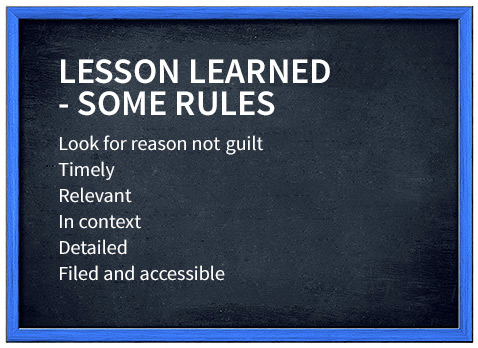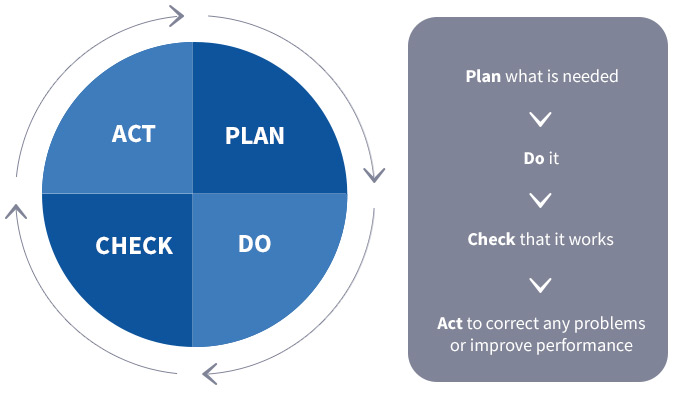
For me creativity has different sources. For example, one is a “new way of connecting the dots exercise” : one must be open, sense the different perspectives and courageously unite them in an original manner. Inspiration may come from various sources and the trick is how to induce the connection and exchange between the parties to integrate into a simple solution – a creative idea…
Sometimes it is not about revolution, or disruptive technology, but continuous evolution based on the incremental effort of asking questions and making improvements. One of the ways for the incremental innovation process to support the above is ” the lesson learned ” that I believe is a wonderful exercise for a team from a trust and improvement perspective.

Lessons learned
learning gained from the process of performing the projects. It is a part of quality, a basis of reflection as well as the good habit of starting off each and every project from another, better starting position.
Kaizen – never rest on your laurels, but start with the first step. Otherwise it will collapse. Kaizen, a Japanese word for ”improvement” or ”change for the best”, refers to philosophy or practices that focus upon continuous improvement of processes in manufacturing, engineering and business management.
PDCA – Edwards Deming placed great importance and responsibility on management at both the individual and company level, believing management to be responsible for 94% of quality problems. His fourteen point plan is a complete philosophy of management that can be applied to large or small organizations in the public, private or service sectors. He believed that adoption of and action on the fourteen points was a signal that management intended to stay in business. Deming also encouraged a systematic approach to problem solving and promoted the widely known Plan, Do, Check, Act (PDCA) cycle. The PDCA cycle is also known as the Deming cycle, in spite of being developed by a colleague of Deming, Dr Shewhart. It is a universal improvement methodology – the idea being to constantly improve and thereby reduce the difference between requirements of customers and the performance of the process. The cycle is about learning and ongoing improvement, learning what works and what does not in a systematic way; the cycle repeats and when complete, another begins.
